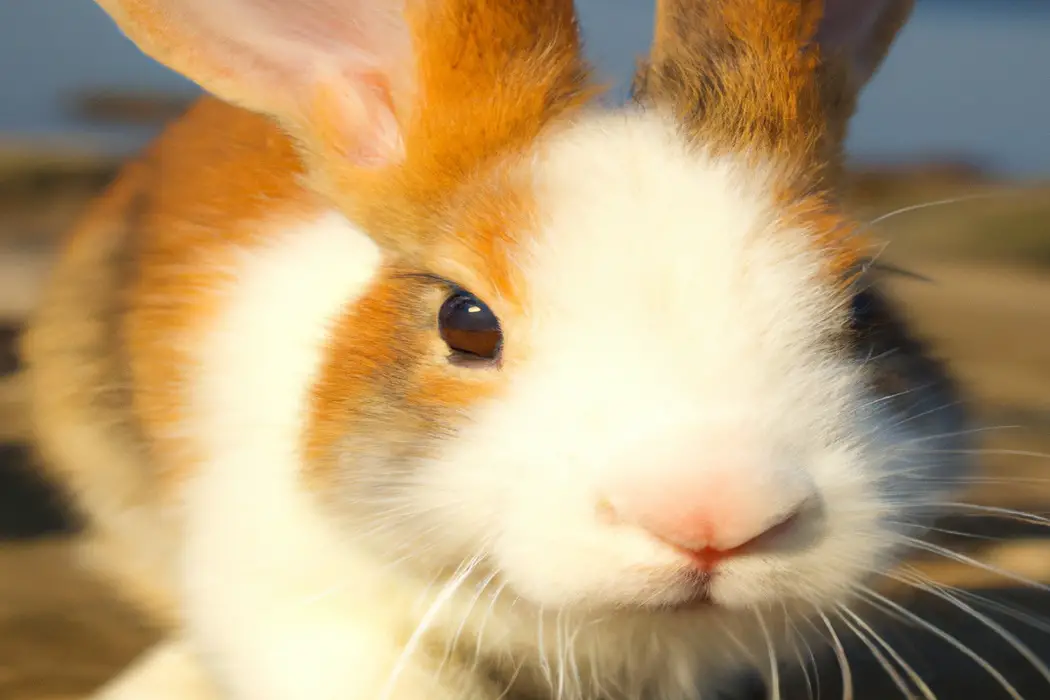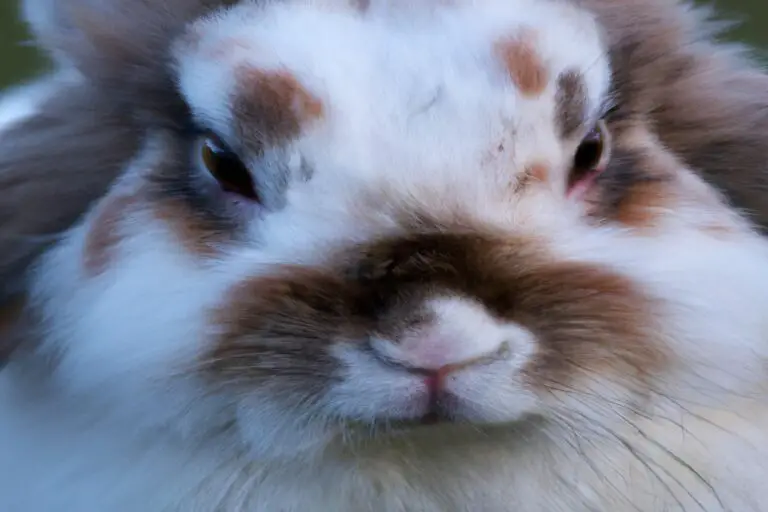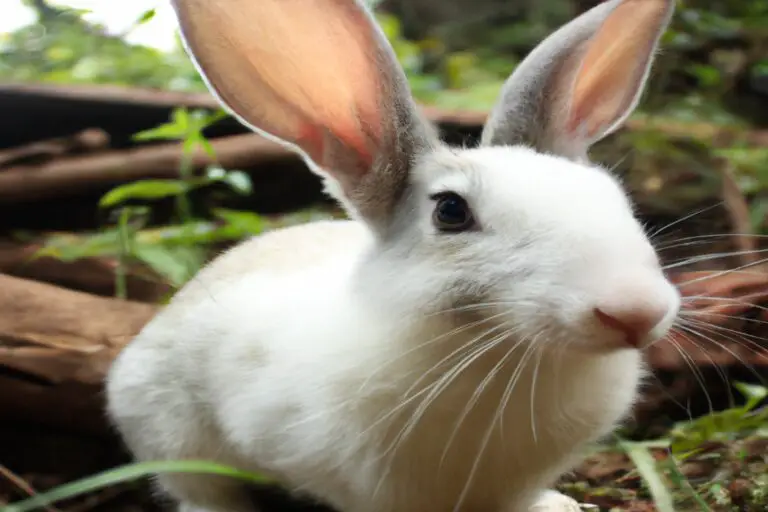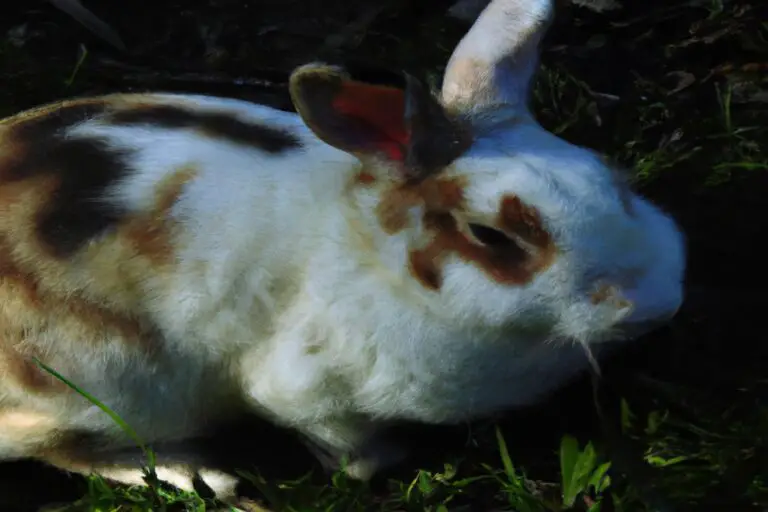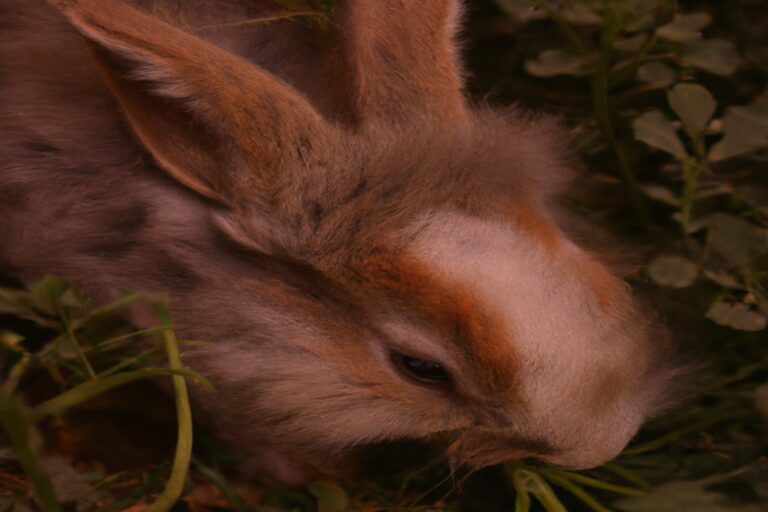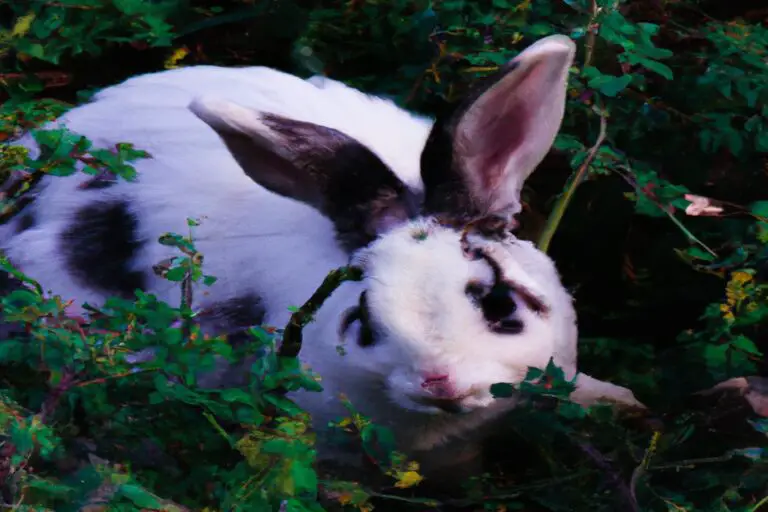Why Is My Female Rabbit Making a Nest? The Surprising Reason
Key Takeaways:
- Nest building is an instinctual behavior in female rabbits, especially when they are preparing to give birth.
- The act of nest building is a sign that your female rabbit may be pregnant and getting ready to have offspring.
- Creating a comfortable and secure nest is essential for the welfare of the newborn rabbits.
- Providing your rabbit with a suitable nesting box and nesting materials can help support her natural nesting instincts.
Are you puzzled by your female rabbit’s sudden fascination with building a nest?
Don’t worry, you’re not alone! Many bunny owners find themselves bewildered by this behavior.
But fear not, because I’m here to shed some light on the topic.
In this article, we’ll dive into the fascinating world of rabbit behavior and explore why your female rabbit is making a nest.
We’ll uncover the reasons behind this behavior and discuss how you can support your bunny during this process.
So, grab a carrot and let’s hop right in!
| Reasons | Explanation |
| Rabbit’s natural behavior | Female rabbits have a natural instinct to create nests for their young ones. It is a sign that she is preparing for potential babies. |
| Pregnancy | If your female rabbit is pregnant, she may build a nest as part of her nesting instinct. |
| False pregnancy | Even if the rabbit is not pregnant, she can still exhibit nesting behavior. This can be due to hormonal changes or environmental factors. |
| Comfort and security | A nest provides a sense of comfort and security for the rabbit. It helps them feel safe and protected. |
Understanding Rabbit Behavior
Understanding Rabbit Behavior: Gain insights into the behaviors of rabbits and how they communicate.
Differentiating between Male and Female Rabbit Behaviors
Male rabbits, also known as bucks, may display more territorial behavior than female rabbits, or does. Bucks may mark their territory by spraying urine or by digging to establish their dominance.
On the other hand, female rabbits may exhibit nesting behavior when they are pregnant or preparing to give birth.
They may gather materials and create a nest in a secluded area. Additionally, bucks may sometimes display more aggressive behavior towards other rabbits, while does tend to be more social and nurturing.
By observing these behaviors, you can differentiate between male and female rabbits.
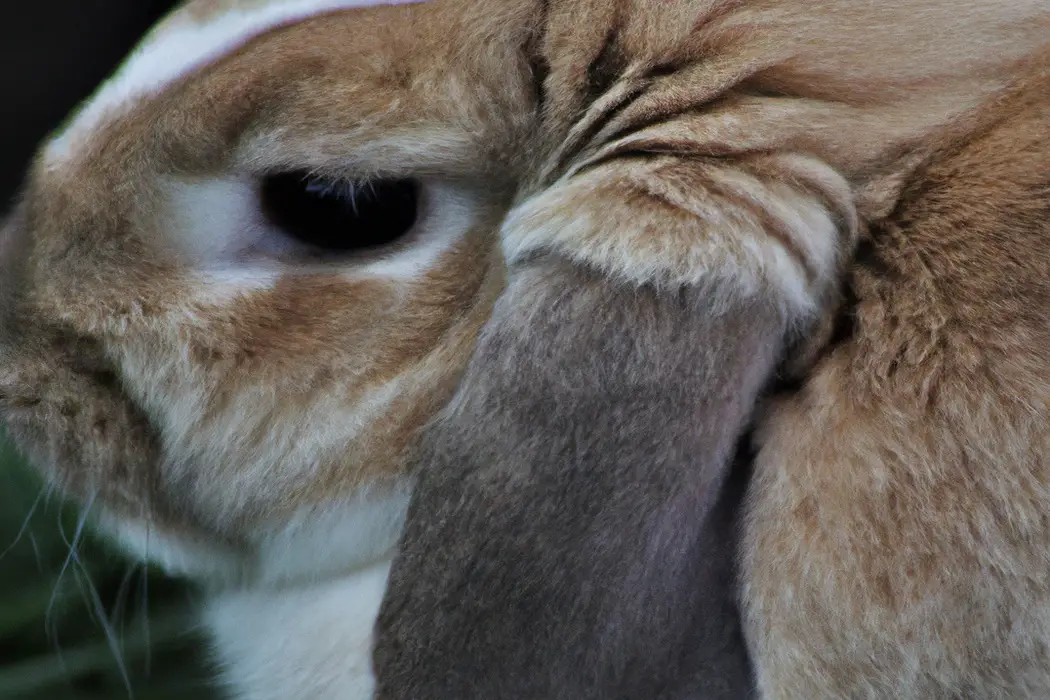
Reasons for Nest Building in Female Rabbits
Female rabbits build nests for several reasons, including preparing for pregnancy and motherhood, experiencing false pregnancy or pseudopregnancy, and responding to natural instincts and hormonal changes.
Preparing for Pregnancy and Motherhood
Preparing for pregnancy and motherhood involves several important steps. Firstly, make sure your female rabbit is of the appropriate age and health to breed.
Secondly, provide a comfortable and clean nesting area where she can prepare for giving birth.
Thirdly, ensure she has a well-balanced diet rich in nutrients to support the demands of pregnancy and nursing. Additionally, giving your rabbit regular vet check-ups and monitoring her behavior can help identify any potential issues early on.
By taking these steps, you can help ensure a healthy and successful pregnancy for your rabbit.
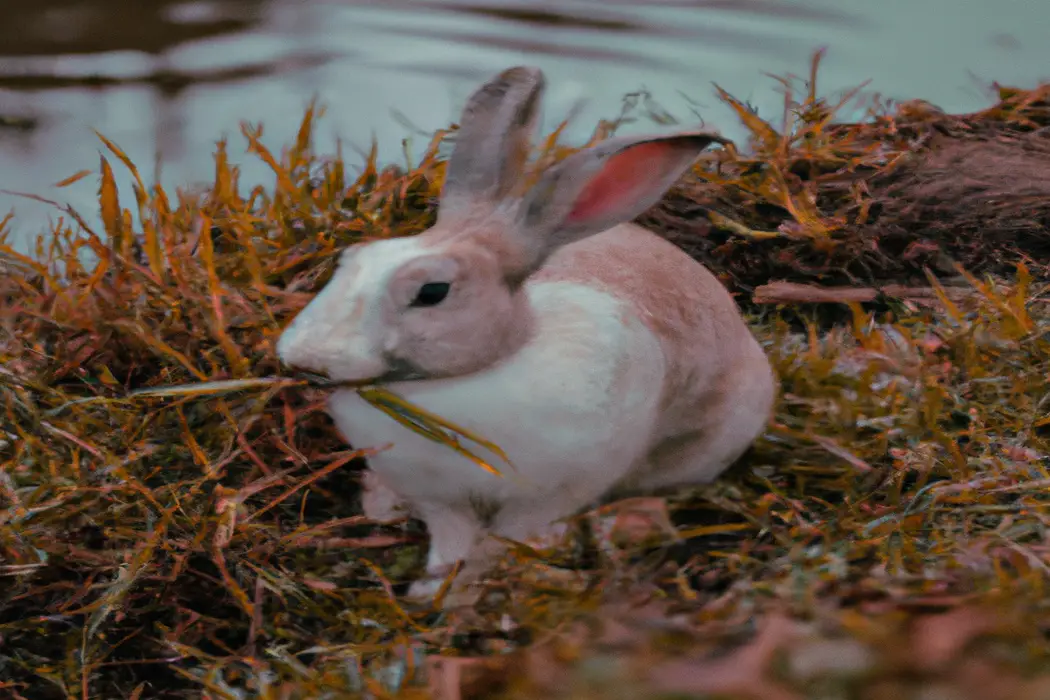
False Pregnancy or Pseudopregnancy
False Pregnancy, also known as pseudopregnancy, is a condition that can affect female rabbits. It occurs when a rabbit’s body mimics the signs of pregnancy, even though she is not actually carrying any kits (baby rabbits).
This condition is usually caused by hormonal imbalances and can lead to behaviors such as nest building, digging, and territorial aggression.
While false pregnancy can be concerning for rabbit owners, it is a natural physiological response and typically resolves on its own within a few weeks. If you suspect that your female rabbit is experiencing false pregnancy, it’s always a good idea to consult with a veterinarian for guidance and to ensure the health and well-being of your furry friend.
Natural Instincts and Hormonal Changes
Female rabbits have the natural instinct to build nests for their young. This behavior is influenced by hormonal changes in their bodies.
As they prepare for motherhood, female rabbits produce more estrogen and progesterone, which triggers nesting behavior.
They may gather materials like straw, hay, and fur to create a cozy and safe environment for their babies. It’s important to provide your rabbit with suitable nesting materials to fulfill her natural instincts and support her maternal instincts.
Signs and Symptoms of Nest Building
Your female rabbit may exhibit signs of nest building, such as gathering materials and creating a safe and comfortable environment, as well as displaying protective behavior and aggression.
Gathering Materials for the Nest
When a female rabbit is preparing to build a nest, she will start by gathering materials.
Here are some common items she may collect:
- Hay or straw: Rabbits often use these materials as a base for their nests, providing warmth and insulation.
- Fur: Some rabbits will pluck fur from their own bodies to line the nest, while others may gather fur from nearby animals.
- Leaves and twigs: These natural materials can be used to reinforce the structure of the nest and provide additional insulation.
- Paper or fabric: In some cases, rabbits may collect scraps of paper or fabric to add comfort and coziness to their nest.
By providing your female rabbit with suitable nesting materials, you can help facilitate her natural nest-building instincts and create a comfortable environment for her and her future offspring.
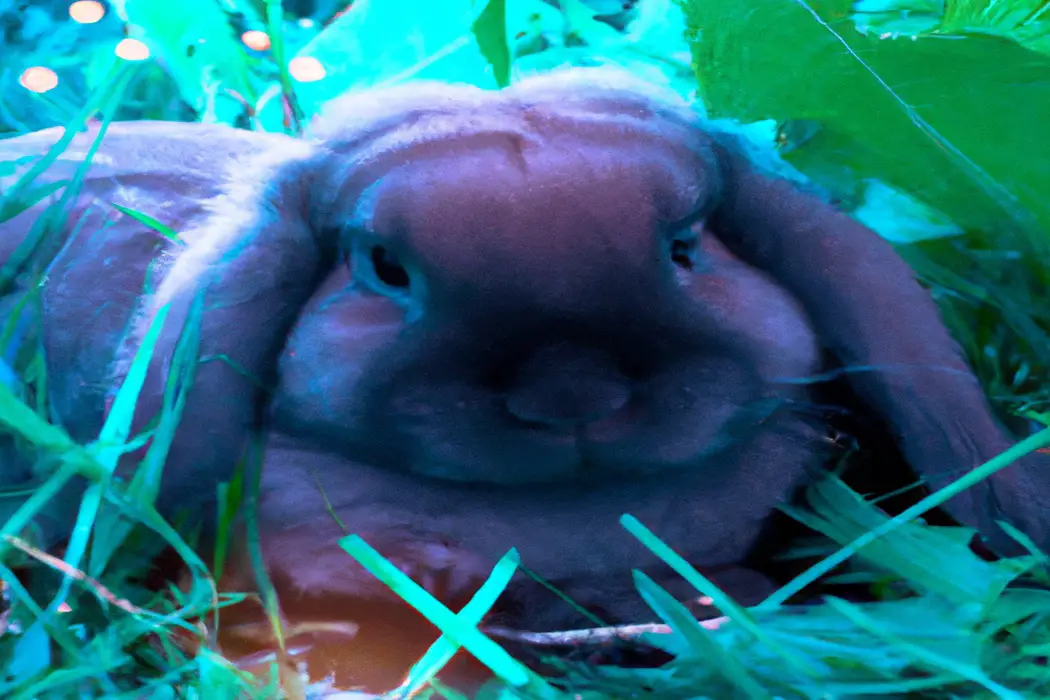
Protective Behavior and Aggression
Protective behavior and aggression can be observed in female rabbits, especially when they are pregnant or have recently given birth. They display these behaviors to protect their nests and offspring from potential threats.
A rabbit showing protective behavior may become more territorial, growling or lunging at anyone who comes near their nest.
Aggression can also manifest towards other rabbits or even humans. It’s important to give the mother rabbit space and avoid interrupting her during this time to avoid triggering her protective instincts.
What to Do When Your Female Rabbit Makes a Nest
When your female rabbit makes a nest, there are a few key steps to take.
Provide Adequate Nesting Material
When it comes to providing nesting material for your female rabbit, it’s essential to offer her a variety of safe and comfortable options.
Some suitable materials include hay, shredded paper, and soft fabrics.
Place these materials in a designated area of her enclosure, allowing her to create her nest.
Avoid using materials that could be harmful, such as plastic or toxic plants.
By providing adequate nesting material, you are ensuring that she has a cozy and secure space to care for her young.
Offering a Secure Space for Nest Building
To offer a secure space for nest building, make sure your female rabbit has a quiet, secluded area where she won’t be disturbed. Provide her with soft, safe materials like hay, straw, and shredded paper.
Place these materials in a nesting box or a small hideaway that she can easily access.
It’s also important to keep the environment calm and stress-free to encourage her natural nesting instincts. Regularly check on her to ensure she’s comfortable and has everything she needs.
Monitoring Her Behavior and Health
Monitoring your female rabbit’s behavior and health is important for her well-being.
Watch out for any changes in her appetite, water consumption, or litter box habits.
Keep an eye on her activity level and look for any signs of discomfort or distress.
Regularly inspect her fur, eyes, and ears for any abnormalities.
Check her teeth and nails for overgrowth.
If you notice any changes or have concerns, consult with a veterinarian who specializes in rabbit care.
Frequently Asked Questions
Can a Female Rabbit Make a Nest if Not Pregnant?
Yes, a female rabbit can make a nest even if she is not pregnant. Nesting behavior is natural for rabbits and can be triggered by various factors such as hormones, instinct, or environmental changes.
It is their way of creating a cozy and secure space for themselves.
So, if you notice your female rabbit making a nest, it doesn’t necessarily mean she is pregnant. It’s just a normal part of their behavior.
How Long Does Nest Building Behavior Last?
Nest building behavior in female rabbits typically lasts for a few days to a week. This behavior is usually exhibited by pregnant or pseudopregnant rabbits and is a natural instinct for preparing a safe and comfortable space for their young.
During this period, you may notice your rabbit collecting hay, straw, and other materials to build a nest.
Once the nest is complete, your rabbit will likely settle down and spend more time inside the nest. It’s important to provide your rabbit with a suitable nesting box or area to fulfill her maternal instincts.
Is Nest Building Behavior Harmful to the Rabbit?
No, nest building behavior is not harmful to rabbits. In fact, it is a completely natural behavior for female rabbits.
It is instinctual for them to prepare a safe and cozy spot to give birth and care for their young.
Nest building is a sign that your rabbit is going through her maternal instincts and is preparing for a potential litter. It’s important to provide her with the necessary materials, such as hay and soft bedding, to support her natural nesting behavior.
Just make sure to monitor her closely for any signs of distress or complications during the nesting process.
Final Verdict
Understanding rabbit behavior is crucial for any rabbit owner. Nest building in female rabbits serves various purposes, such as preparing for pregnancy and motherhood, pseudopregnancy, and following natural instincts and hormonal changes.
Common signs of nest building include gathering materials, creating a comfortable environment, and exhibiting protective behavior.
When your female rabbit starts making a nest, provide adequate nesting materials, offer a secure space, and monitor her behavior and health. Remember, taking care of your rabbit’s needs can lead to a happy and healthy furry companion.

